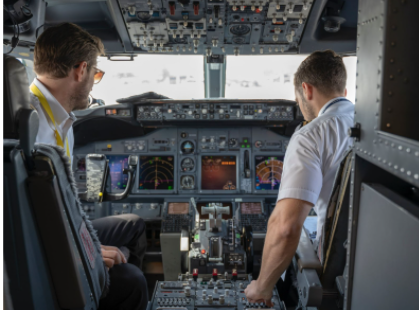The profession of a pilot is a highly rewarding career option. As much as it is rewarding, it is equally challenging. It requires one to keep one’s cool to fly safely in rough weather or above the mountains when there is turbulence with a difference in air pressure. This profession is not meant for everyone, certainly not for someone who has acrophobia or is highly anxious, prone to stress and has blood pressure rising because of anxiety.
If you have these concerns in check and aspire to become a pilot, read this article further. Here we will inform you of the skillsets you will need to incorporate or hone if you want to become a successful pilot.
What Traits Do You Need To Become A Good Pilot?
Being a pilot requires a huge amount of patience, perseverance and determination. Choosing to be a pilot cannot come with fickle-mindedness. If you want to see yourself in uniform in the coming days, you will have to set your goal strongly with determination. Once you have determined that a pilot is what you want to become, work on the following:
- Communication Skills = as a pilot, you never know when an unprecedented situation is at bay. You will have to provide and ask for information, instructions, requests, proposals, advice and confirmation on an immediate, real-time basis with air- traffic controllers, seniors and colleagues. Therefore, while communication is an important skill required for more or less every profession, it is a critical skill to have as a pilot. Clear communication skills and ensuring that the same message has been transmitted and received can prevent 80% of unwanted incidents.
- A skill needed along with good communication is being a good team player. A pilot has to collaborate with other team members to solve the problem at hand. Therefore, while problem-solving skills and thinking and making quick decisions are important, equally important are team worker skills. Other required skills are good analytical skills, mathematical skills, and good leadership skills.
- Research the aviation industry = Know what the life of a pilot looks like. Practices that will help you achieve this include – joining commercial pilot schools, taking tours around the campus, attending pilot talks, reading aviation news and blogs on the related topics.
- Presence of a sound mind = Before you fly, you will have to take note of the weather conditions, the configuration of the aircraft, the communication between air traffic controls and other aircraft. You need to check the status of the control system modes such as speed, altitude, flight planning functions, the geographical position and attitude of the aircraft. There is no way that you can zone- out. The ability to keep your mind calm under stressful work conditions is highly required. If any issue is bothering you and not allowing you to concentrate, it is best to avoid sitting in the cockpit that day. Thus, you will have to exercise a great deal of self-discipline as a pilot.
- Confidence = What comes with high self-discipline is a great attitude towards flying and self-confidence. Note that there are instances where people often go from being timid to cocky. In many instances, they disregard the instructions from the instructors. The airlines have ways of humbling this attitude wherein the pilots never feel confident of flying solo again or do this with a seed of doubt planted in them. Hence while confidence is required, pilots should learn to draw the line from overconfidence.
Conclusion
We hope this article was helpful to you. Subscribing to aviation articles and building a habit of regularly reading them will help to build an attitude in you that will benefit you in the long run.
































